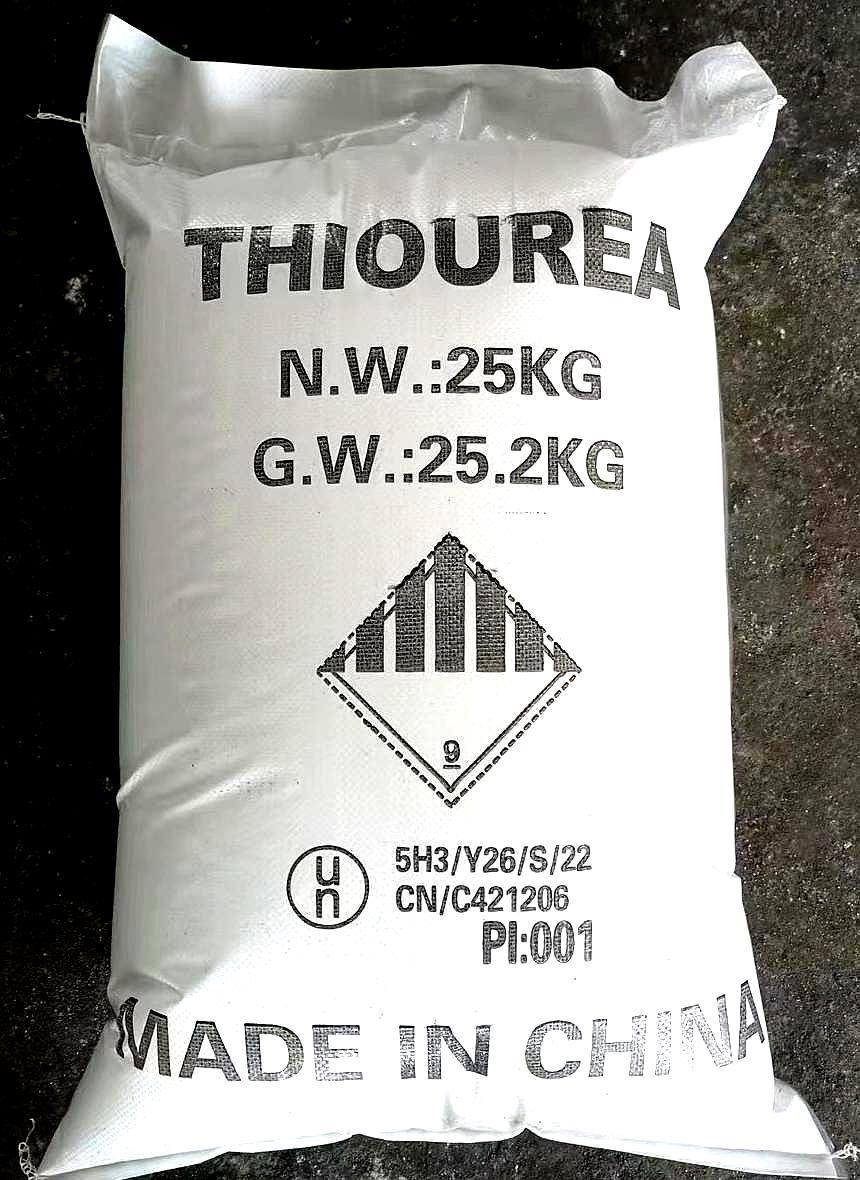THIOUREA
 Thiourea Product Information
Thiourea Product Information
Chemical Name: Thiourea
CAS Number: 62-56-6
Molecular Formula: CH₄N₂S
Appearance: White or off-white crystalline solid
Description
Thiourea is a colorless crystalline organic compound, the sulfur analog of urea. It is used in various applications including as a sensitizer in photography and medicine, and as a growth stimulator in agriculture. Thiourea is capable of breaking seed dormancy and is used to stimulate seed germination by soaking seeds before planting.
Applications
1. Agriculture:
• Seed Germination: Stimulates seed germination by breaking dormancy. Seeds are soaked in thiourea solution for less than 24 hours before planting.
• Growth Stimulation: Acts as a growth stimulator, inhibiting bud dormancy in plants.
2. Photography:
• Sensitizer: Used as a sensitizer in photographic processes.
3. Industry:
• Rubber: Functions as an antiozonant in rubber processing.
• Toning Agent: Used in the production of photosensitive papers.
• Corrosion Inhibitor: Serves as a corrosion inhibitor in various industrial applications.
• Textiles: Employed as a flame-retardant textile size.
4. Medicine:
• Hyperthyroidism Treatment: Used in the treatment of hyperthyroidism.
Health and Safety
• Toxicity: Thiourea is toxic and potentially carcinogenic. It can cause skin irritation and allergic reactions. It is harmful if swallowed and poses risks of carcinogenic effects based on animal studies.
• Fire Hazard: Noncombustible but can react violently with certain chemicals like acrolein.
• Handling: Should be handled with appropriate safety measures, including wearing protective clothing and avoiding release to the environment.
Technical Specifications
• Melting Point: 171-175 °C
• Solubility: Soluble in water
• Purification Methods: Crystallize from ethanol, methanol, acetonitrile, or water, and dry under vacuum over H₂SO₄.
Storage and Handling
Store in a cool, dry place, away from incompatible materials such as strong oxidizing agents. Use appropriate personal protective equipment (PPE) when handling thiourea.
Environmental Impact
Thiourea is toxic to aquatic organisms and may cause long-term adverse effects in the aquatic environment. Disposal should comply with environmental regulatory guidelines.
Previous
Next
Previous
POTASSIUM ACETATE
Next
